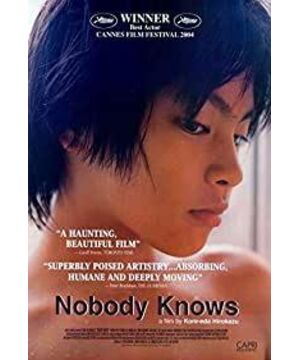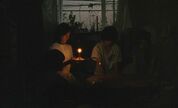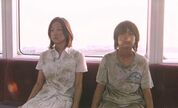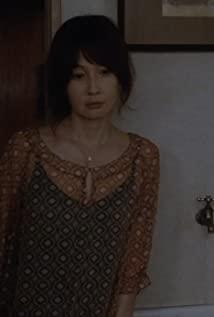The shocking social news happened in California, USA, that a couple locked their 13 children at home for many years (13 siblings were held captive by parents), the oldest is 29 years old and the youngest is 2 years old. Last weekend, the 17-year-old daughter escaped from the house and was able to call the police with a dead mobile phone. Such news makes me want to see the movie "Nobody Knows" directed by Hirokazu Koreeda. A similar case happened in Japan in 1988. A single mother left five biological children, the oldest 14 years old and the youngest 2 years old, in a rental house, leaving them to fend for themselves. As a result, after a child died for unknown reasons, it was kept in the room. In the cupboard, another child was beaten to death by the eldest son, Huyou, and the two smuggled the body to bury it elsewhere. The director is Hirokazu Koreeda who always wanted to record this event, so he had the 2004 Cannes award-winning film "Nobody Knows".
I'm not a movie fan, and I'm always impatient when watching movies. Because the visuals of ordinary commercial movies are very stylized, and only rely on the rapid development of the plot, the audience is often more anxious than the movie itself. And I watched the movie yesterday on the subway and took several stops for it. After the last scene of the movie faded out, the emotions were pulled from the play, and walking in the hurried crowd, there was only one thought: breathtaking. Such movies are "watched" movies, and they tell a truth: life itself is extremely mundane and sacred, even the life of a social outcast.
It was Hirokazu Koreeda who made this cruel story warm as a whole. The 14-year-old eldest son, Akira Fukushima, has been working hard to take care of his younger brother and sister. After the little sister stumbled and died, he and his new girlfriend packed the little sister in a suitcase and took it to the plane. Buried in the field, - in order to realize the wish to let my sister see the plane. The rental house went from being warm and tidy when my mother was there to a mess. The arrears gradually stopped running out of water and electricity. Even eating a bowl of cup noodles was an extravagant hope. When I picked up a coin from an automatic telephone booth, I was overjoyed. They live quietly, quietly dreaming of simple wishes, and quietly accepting their own destiny, never complaining, never feeling that I am owed, my mind gallops through the antelope captured by the lion on the grassland, by the Chengdu girl Corgi Lion, who was thrown from a high-rise building by a teacher, and more than 20 puppies that were poisoned to death in a neighborhood in Beijing recently.
For some reason, it is Hirokazu-eda's shot that can't even be described as sad but not sad, but a kind of pure peace, even reminiscent of Xu Anhua's "Day and Night in Tianshui Wai" at some point, but the latter is after all a This is an intentional optimism, so "Nobody Knows" seems to be more in line with Tao Yuanming's saying that "in the midst of great waves, neither joy nor fear".
View more about Nobody Knows reviews










